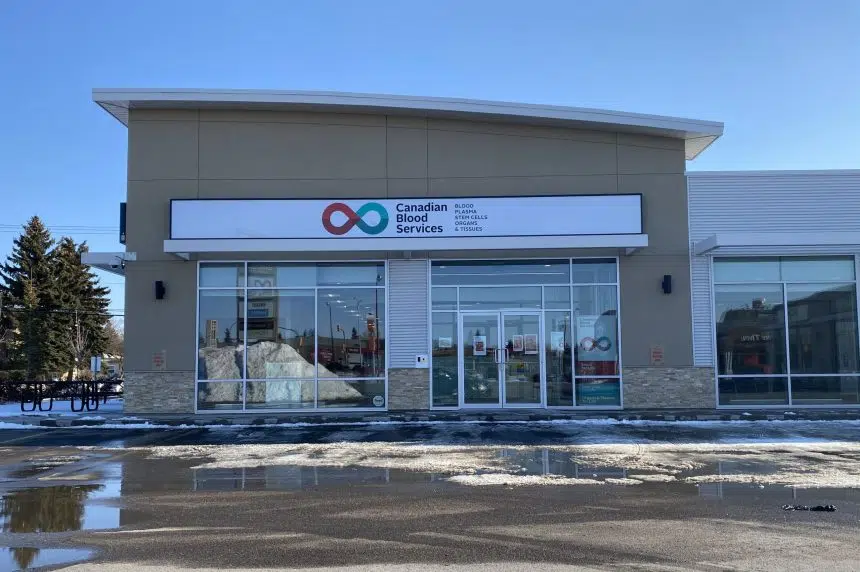Anyone in Saskatoon or Regina who has recovered from COVID-19 and meets certain criteria, could be part of a new, nation-wide trial .
The trial, which got underway just last week in more than 50 hospitals across the country, aims to collect what’s called “convalescent plasma” from those who have recovered from COVID-19. Trial participants have to have a clean bill of health for at least 28 days.
Canadian Blood Services (CBS) lead scientist Dr. Dana Devine, says the practice of collecting convalescent plasma has been going on since the late 1800s.
“The idea is that we know that once you’ve had an illness, your immune system responds to that by making antibodies. Those antibodies stay circulating in your plasma and they will help you fight off subsequent exposures to that illness. But they also are a potential therapy for people whose own immune systems haven’t quite caught up with the illness and they’re very sick because they don’t have a decent level of immune response to the virus or any other disease.”
The hope is that once the plasma is collected, it can then be matched with someone who is sick with the virus to prevent them from becoming even more ill.
“One approach would be, you could give convalescent plasma to someone shortly after they present to the hospital with their shortness of breath and that plasma might be able to keep them from ending up on a ventilator,” she explains.
CBS is now actively recruiting donors, and collecting the plasma for distribution to hospitals across the country. Even though the practice has been in place for more than 100 years, there’s only anecdotal evidence at this point indicating that plasma may be an effective treatment. That’s the reason for the large scale trial, says Devine.
“People tried treating patients with convalescent plasma, and some of the patients got better and others didn’t. And so, we’re not really completely sure whether this therapy is going to work for COVID-19…that’s the purpose of this national clinical trial is to do this under very stringent clinical trial rules.”
She anticipates that collection will take place over many months, but has no idea how long exactly the trial will last – in part because it’s not clear whether there will be a second wave of illnesses and how many people may be affected.
Many other countries are taking part in similar trials, but because they’re so new, there aren’t any results to share at this point.
The donation process is very similar to donating blood, but takes anywhere from 45 minutes to one hour to complete.
“We put you on a machine, we put a needle in your arm, and the blood goes into a machine,” explains Devine. “What the machine does is it spins your blood and it gives you back your red blood cells and white blood cells and platelets.”
Plasma will be used on a couple of different groups: the first – those who test positive and who aren’t very sick yet, but whose bodies don’t have an immune response built up yet, and the second, will be focused on ICU patients in order to see if the plasma can help them simply survive the illness.
The plasma will be made available to all provinces, regardless of whether they have hundreds of cases, or thousands of cases of COVID.
Anyone interested in becoming a donor can do so online through the Canadian Blood Services website.







